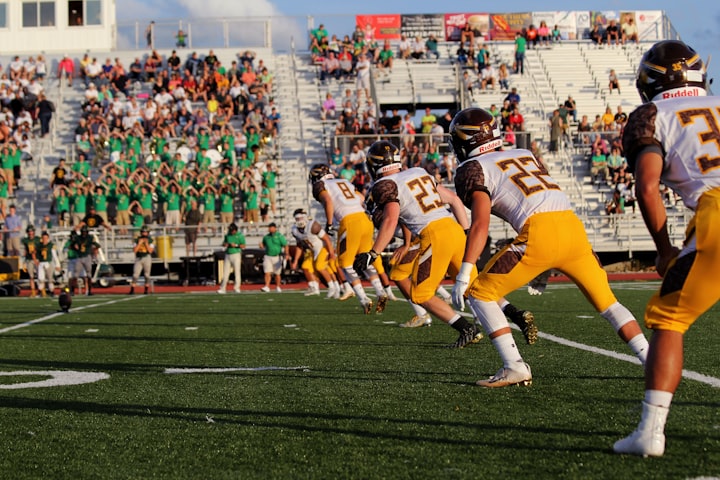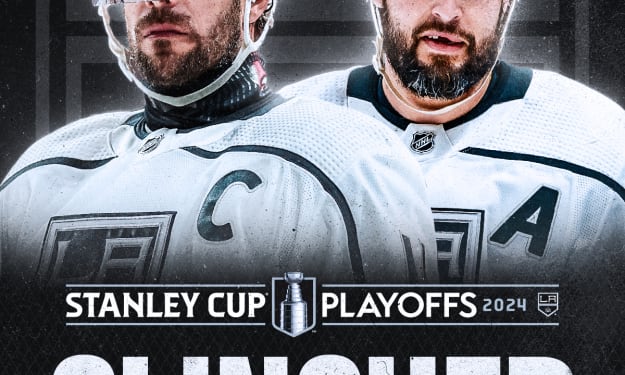The Unsung Heroes in College Sports
When you think of college sports, you might think of that backup goalie that steps in during a pivotal moment or of that offensive lineman as an unheralded hero. But they aren’t the ones that put in the most unnoticed work.

If COVID-19 has taught us anything, it’s that we should know who is essential and non-essential. Frankly, everyone is essential to the operation of some enterprise everywhere.
College sports have certainly taken a significant hit over the last nine months as athletic seasons have been cancelled, lives have changed and people have made enormous sacrifices.
We’ve learned in recent months that people matter. Don’t get me wrong, people have always mattered, but they matter a bit more now.
You slip your bartender a few more dollars, you think twice about bad mouthing that shelf stocker at the grocery store and people are even starting to put out Thank You Care Packages for delivery people.
I bring a fairly unique viewpoint to this conversation as I’ve lived that life of an unsung hero in college sports. You see, the backup goalie and the offensive lineman are important, don’t get me wrong, but without the people in my former life those stories never get told.
Everyone loves the feel good stories. Stories like the injured player who comes back to play on Senior Day and makes a big play or the women’s soccer player turned kicker who makes college football history are sure to turn heads. But how do those stories get told?
Well, they’re told by people who go by about a dozen different titles and a dozen more responsibilities. Sports Information Director, and Athletic Media Relations Director are two that come to mind immediately, but there are certainly many more.
These integral members of the athletic department are sadly the first ones to be forgotten by the power players on campuses. Names like Trevor Lawrence are far more recognizable than names like Ross Taylor. Stephen Hauschka is a much bigger name than Brad Nadeau in most circles.
When colleges were looking to make unfortunate cuts to staff, these members of the campus community were among the first to get the axe. But they play such important roles to the lifeblood of colleges through their important work in college athletics.
On Saturday mornings, ESPN airs a widely popular show called College Gameday. They throw statistics around on air and other incredible nuggets of information to keep the fans engaged. Where do they get this information? Well, some of it is internal information that the stats department at ESPN puts together, but most of it is created by the Sports Information Department at each school through something called Game Notes.
In 2012, a men’s basketball player named Jack Taylor made national news when he set an NCAA record of 138 points in a single game. The video that ESPN aired, any ideas where that came from? It didn’t come from Taylor’s parents, a student’s Twitter account or the post-game film exchange. Nope, even in 2012 it came from a guy named Ted Schultz and his team that helped to put a live stream together. But you would never know that, unless you worked in the profession.
When you watch SportsCenter in the morning and there are college plays in the Top 10, those are also typically provided by Sports Information at the respective schools.
Sure, these might just be simple flashes in the pan and small instances of glory. But more importantly, they get colleges into the lexicon of impressionable 14-17 year old kids who might be looking to go to college somewhere over the next couple of years. The admissions office should throw parties when these things happen, but for the most part, it’s just an expectation now.
Every time you visit ESPN.com and see a box score from that night’s ACC basketball game, where do you think that box score comes from? Is it magically created somewhere?
The answer is no, someone sits in front of a computer and is the official statistician for that game. They submit the scores to newspapers and other outlets and submit box score files to a variety of online outlets to maximize exposure.
I’ve had the privilege of working with many of these sports information professionals over my professional career. Whether it was as a direct colleague, in a supporting role or trying to sell a solution to them to save them time, I learned quickly that they are some of the most resourceful, humble and kind people you’ll ever run across.
But let’s face it, right now they’re in the crosshairs from people above them who truly have no idea what they do unless they are one of the rare few who have sat in their chair. Even worse, the powers that be often overlook the critical and key role played by these overworked, underpaid professionals.
Too often, they're viewed as the person in the broom closet that writes stories and crunches numbers. Sure those are two pieces of the pie, but the role is far more detailed and these folks are ambassadors of the school both on the job and off the job.
I’ve made lifelong friends through college sports. Some of those people are coaches, some are administrators and some were bosses and employers. It’s hard to now see what’s happening on college campuses to people that I'm fortunate enough to call my friends.
Games are being played to decimated crowds, mainly for television rights revenues to be collected. Locker rooms are off limits, circus tents are setup in parking lots for meals and some stories are being told that are impressive.
Unfortunately though, I feel like so much is being done for naught. While Dabo Swinney is allowed to openly blast the medical experts over his team taking a trip and spending $300,000, there are non-revenue sports that aren’t allowed to compete. There are schools closing down, athletic departments cutting staff and programs. There are thousands of 18-22 year old young men and women who have incredible stories to tell, but they have been silenced.
The heroes in college sports aren’t the conference commissioners in Power 5 conferences. They aren’t Heisman Trophy quarterbacks, or coaches making seven figures then refusing to take a pay cut like everyone else.
The heroes are those behind the scenes people who tell the stories, working behind the scenes to create an environment where everyone else benefits.






Comments
There are no comments for this story
Be the first to respond and start the conversation.